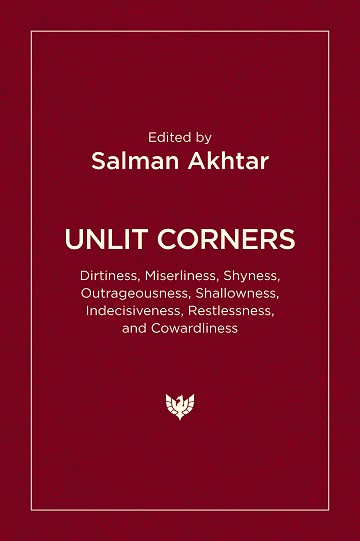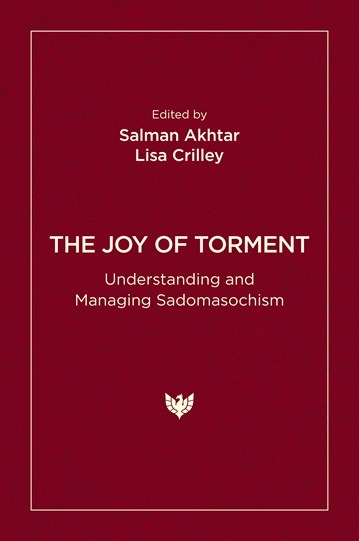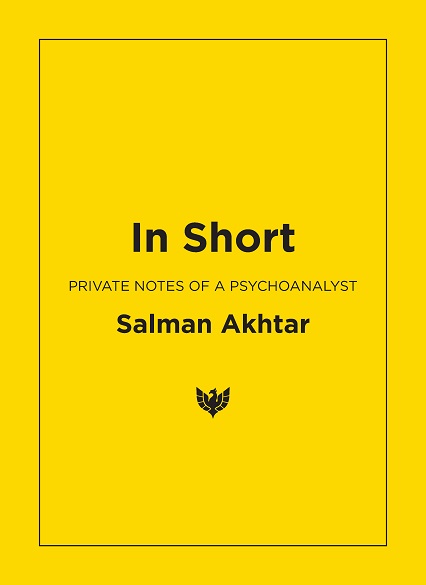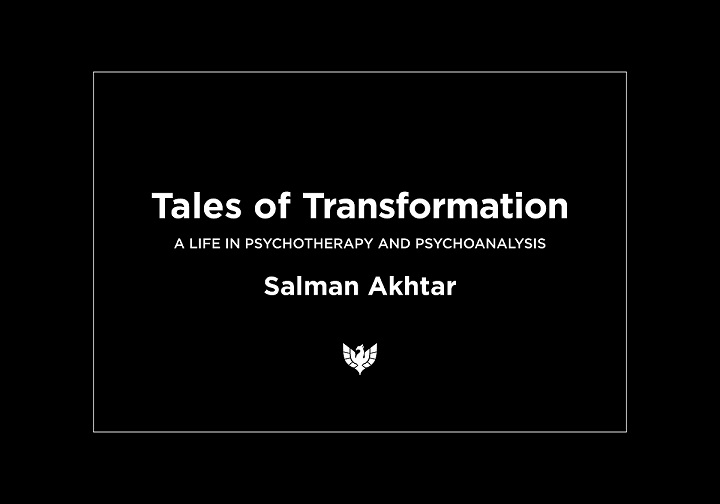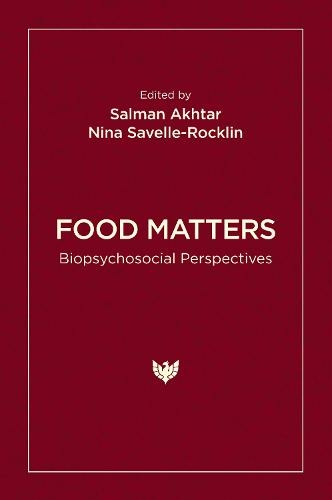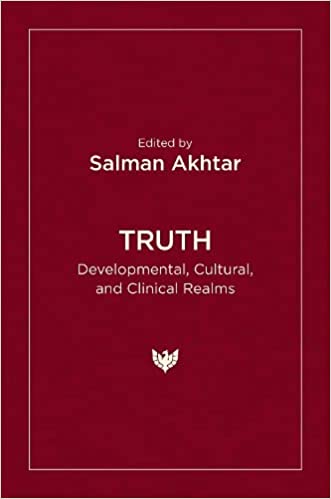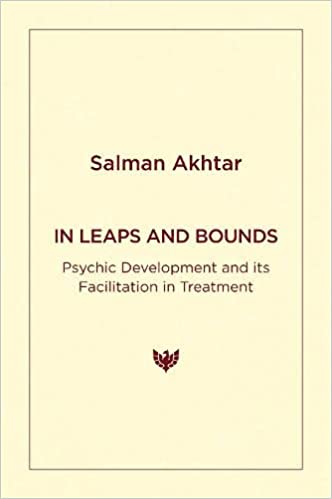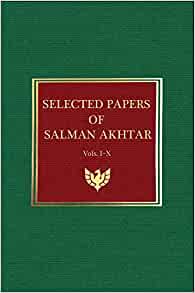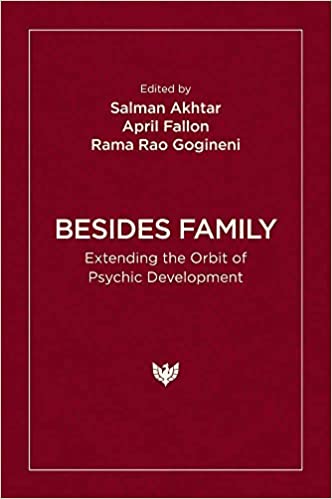Salman Akhtar

Salman Akhtar, MD, is professor of psychiatry at Jefferson Medical College and a training and supervising analyst at the Psychoanalytic Center of Philadelphia. He has served on the editorial boards of the International Journal of Psychoanalysis and the Journal of the American Psychoanalytic Association. His more than 450 publications include twenty-three solo authored books – Broken Structures (1992), Quest for Answers (1995), Inner Torment (1999), Immigration and Identity (1999), New Clinical Realms (2003), Objects of Our Desire (2005), Regarding Others (2007), Turning Points in Dynamic Psychotherapy (2009), The Damaged Core (2009), Comprehensive Dictionary of Psychoanalysis (2009), Immigration and Acculturation (2011), Matters of Life and Death (2011), Psychoanalytic Listening (2013), Good Stuff (2013), Sources of Suffering (2014), No Holds Barred (2016), A Web of Sorrow (2017), Mind, Culture, and Global Unrest (2018), Silent Virtues (2019), Tales of Transformation (2022), In Leaps and Bounds (2022), and In Short (2024) – as well as sixty-nine edited or coedited volumes in psychiatry and psychoanalysis. Dr. Akhtar has delivered many prestigious addresses and lectures including, most significantly, the inaugural address at the first IPA-Asia Congress in Beijing, China (2010). Dr. Akhtar is the recipient of the Journal of the American Psychoanalytic Association’s Best Paper of the Year Award (1995), the Margaret Mahler Literature Prize (1996), the American Society of Psychoanalytic Physicians’ Sigmund Freud Award (2000), the American College of Psychoanalysts’ Laughlin Award (2003), the American Psychoanalytic Association’s Edith Sabshin Award (2000), Columbia University’s Robert Liebert Award for Distinguished Contributions to Applied Psychoanalysis (2004), the American Psychiatric Association’s Kun Po Soo Award (2004), the Irma Bland Award for being the Outstanding Teacher of Psychiatric Residents in the country (2005), and the Nancy Roeske Award (2012). He received the Sigourney Award (2013), which is the most prestigious honor in the field of psychoanalysis. Dr. Akhtar is an internationally sought speaker and teacher, and his books have been translated in many languages, including German, Turkish, and Romanian. His interests are wide and he has served as the film review editor for the International Journal of Psychoanalysis, and is currently serving as the book review editor for the International Journal of Applied Psychoanalytic Studies. He has published eighteen collections of poetry and serves as a scholar-in-residence at the Inter-Act Theatre Company in Philadelphia. His Selected Papers (Vols I–X) were recently published and released at a festive event held at the Freud House & Museum in London.
Unlit Corners: Dirtiness, Miserliness, Shyness, Outrageousness, Shallowness, Indecisiveness, Restlessness, and Cowardliness
Unlit Corners endeavours to bring light to neglected character traits which many struggle to overcome. Filled with relevant case studies and carefully crafted psychoanalytic theory, the book... (more)
The Joy of Torment: Understanding and Managing Sadomasochism
A search for answers on the subject of sadomasochism: its origins, forms and functions, nature, and societal status. An international group of distinguished psychiatrists, psychologists, and... (more)
In Short: Private Notes of a Psychoanalyst
In Short: Private Notes of a Psychoanalyst is wise, uplifting and inspiring. Salman Akhtar brings his talent for poetic literature to gift us 111 pithy ‘proto essays’ on a wide range of subjects. His... (more)
Tales of Transformation: A Life in Psychotherapy and Psychoanalysis
One hundred (and one) tales to mark Salman Akhtar’s one hundredth book! Divided into eight informative parts – Dr Akhtar’s journey to psychoanalysis; the lessons he learned from his teachers,... (more)
Food Matters: Biopsychosocial Perspectives
Food matters because food is essential to sustain life, and food matters are complex and wide-ranging, encompassing the symbolic as well as the practical. The rich discussions of the relationship... (more)
Truth: Developmental, Cultural, and Clinical Realms
This edited collection gathers together erudite and considered contributions from Salman Akhtar, Cobi Avshalom, Brett Clarke, Mali Mann, Gila Ofer, Thomas Ogden, Louis Rothschild, Batya Shoshani,... (more)
Fatherhood Scenarios: Development, Culture, Psychopathology and Treatment
Fatherhood Scenarios offers a wide range of perspectives, including different cultural and ethnic perspectives and chapters considering the role of the father throughout the lifespan, including... (more)
In Leaps and Bounds: Psychic Development and its Facilitation in Treatment
A tour de force from the inimitable Salman Akhtar. Dr Akhtar brings his encyclopaedic knowledge of psychoanalysis to present a deceptively simple guide to personality development across the full... (more)
Psychoanalytic Listening: Methods, Limits, and Innovations
'Joseph Breuer’s celebrated patient, Anna O., designated psychoanalysis to be a "talking cure". She was correct insofar as psychoanalysis does place verbal exchange at the center stage. However, the... (more)
On Freud's "Beyond the Pleasure Principle"
Freud's Beyond the Pleasure Principle constitutes a major landmark and a real turning point in the evolution of psychoanalytic theory. Pushing aside the primacy of the tension-discharge-gratification... (more)
A Web of Sorrow: Mistrust, Jealousy, Lovelessness, Shamelessness, Regret, Hopelessness
Bringing together the experiences of mistrust, jealousy, lack of love, shamelessness, regret, and despair, this far-reaching book elucidates human sorrow in striking sociocultural and clinical... (more)
Shame: Developmental, Cultural, and Clinical Realms
A late-comer to psychoanalytic theorizing, 'shame' results from a disjunction between the ego and the ego-ideal. A complex psychosocial experience, it is comprised of a painful exposure of one’s... (more)
Human Goodness: Origins, Manifestations, and Clinical Implications
Human Goodness: Origins, Manifestations, and Clinical Implications focuses on the positive attributes that exist in each human heart. In this volume eight distinguished clinicians elucidate the... (more)
Selected Papers of Salman Akhtar
Salman Akhtar is a Professor of Psychiatry, a Training and Supervising Analyst, a member of numerous editorial boards, winner of many awards, including the highly prestigious Sigourney Award, a... (more)
Besides Family: Extending the Orbit of Psychic Development
With contributions from Salman Akhtar, Patricia Boguski, Ann Eichen, April Fallon, Theodore Fallon, Jr., Rama Rao Gogineni, Mark Moore, Sonja Ware.
Collectively authored by psychoanalytic... (more)
Good Stuff: Courage, Resilience, Gratitude, Generosity, Forgiveness, and Sacrifice
Good Stuff is divided into two main parts; Part I addresses Positive Attributes and Part II, Positive Actions. The former contains chapters on Courage, Resilience, and Gratitude. The latter contains... (more)
Guilt: Origins, Manifestations, and Management
Guilt: Origins, Manifestations, and Management is replete with clinical pearls and highly useful tips for the management of patients driven by feelings of guilt and remorse. Eight distinguished... (more)
Real and Imaginary Fathers: Development, Transference, and Healing
In this work, Salman Akhtar looks at how many fathers unconsciously, and sometimes quite consciously, attempt to revise their own traumatized childhood by providing their children with possibilities... (more)
On Freud's "The Unconscious"
If there ever was one word that could represent the essence of Freud’s work, that word would be ‘unconscious’. Indeed, Freud himself regarded his 1915 paper ‘The Unconscious’ as central to clarifying... (more)
Good Stuff: Generosity, Resilience, Humility, Gratitude, Forgiveness, and Sacrifice
Good Stuff is divided into two main parts; Part I addresses Positive Attributes and Part II, Positive Actions. The former contains chapters on Courage, Resilience, and Gratitude. The latter contains... (more)
Cultural Zoo: Animals in the Human Mind and its Sublimation
‘This book is a major contribution to culture and to the psychoanalytic literature. The authors explore how animals, both wild and domesticated, have powerful symbolic meanings in our psyches,... (more)
Mental Zoo: Animals in the Human Mind and its Pathology
‘Salman Akhtar and Vamik Volkan’s dynamic book, Mental Zoo, takes the reader on a panoramic tour illuminating the rich world of animals in human experience. Here Freud’s rats, wolves, and horses join... (more)
The Electrified Mind: Development, Psychopathology, and Treatment in the Era of Cell Phones and the Internet
The Electrified Mind helps therapists understand and empathize with patients who rely heavily upon cell phones and the internet for the purposes of self-expression as well as for defensive avoidance... (more)
Revenge: Narcissistic Injury, Rage, and Retaliation
Revenge: Narcissistic Injury, Rage, and Retaliation addresses the ubiquitous human wish to take revenge and settle scores. Featuring the contributions of eleven distinguished mental health... (more)
Mind, Culture, and Global Unrest: Psychoanalytic Reflections
In this compact and pithy book, the distinguished and prolific psychoanalyst Salman Akhtar steps out of his consulting room to address certain matters of urgent global concern. These include... (more)
Fear: A Dark Shadow Across Our Life Span
Beginning with Freud’s celebrated case of Little Hans, psychoanalysts and psychotherapists have been intrigued with the topic of fear. Eclipsed in theoretical writings by the term ‘anxiety’, fear... (more)
Sources of Suffering: Fear, Greed, Guilt, Deception, Betrayal, and Revenge
This concise and well-written book deals with six important roots of human anguish. It divides the six areas into those primarily affecting the individual and those primarily affecting others around... (more)
Guilt: Origins, Manifestations, and Management
In this elegantly written book, eight distinguished psychoanalysts address the ubiquitous phenomenon of guilt. They describe the childhood experiences that form the bedrock of this emotion and... (more)
Lying, Cheating, and Carrying on: Developmental, Clinical, and Sociocultural Aspects of Dishonesty and Deceit
What constitutes a lie? What are the different types of lies? Why do people lie? Is dishonesty ubiquitous in human experience? And what should be done with individuals who seek psychotherapeutic help... (more)
The Damaged Core: Origins, Dynamics, Manifestations, and Treatment
This comprehensive and tightly argued book deals with the process through which a coherent self evolves, the various ways such development fails to occur, and the therapeutic measures to put things... (more)


